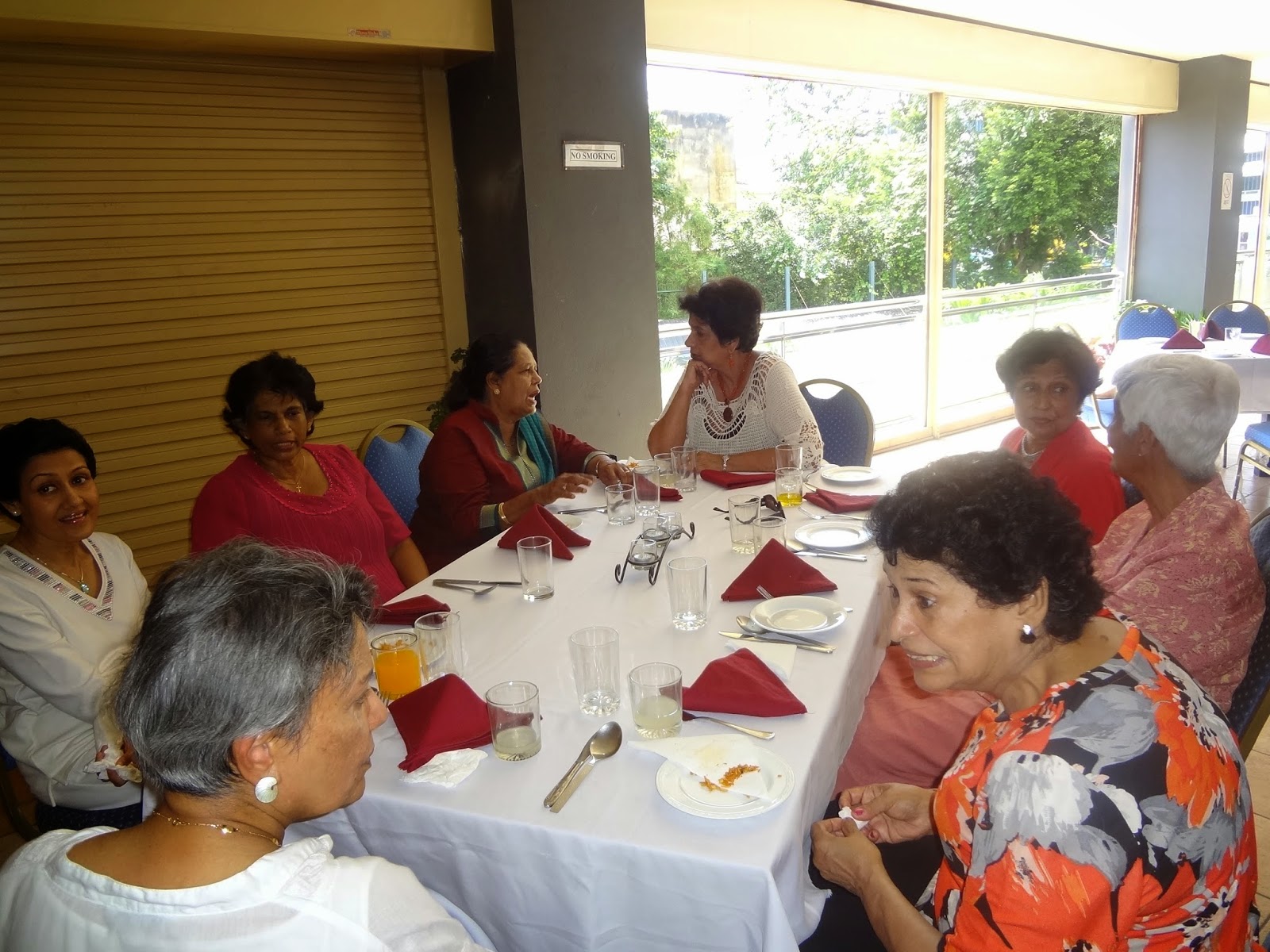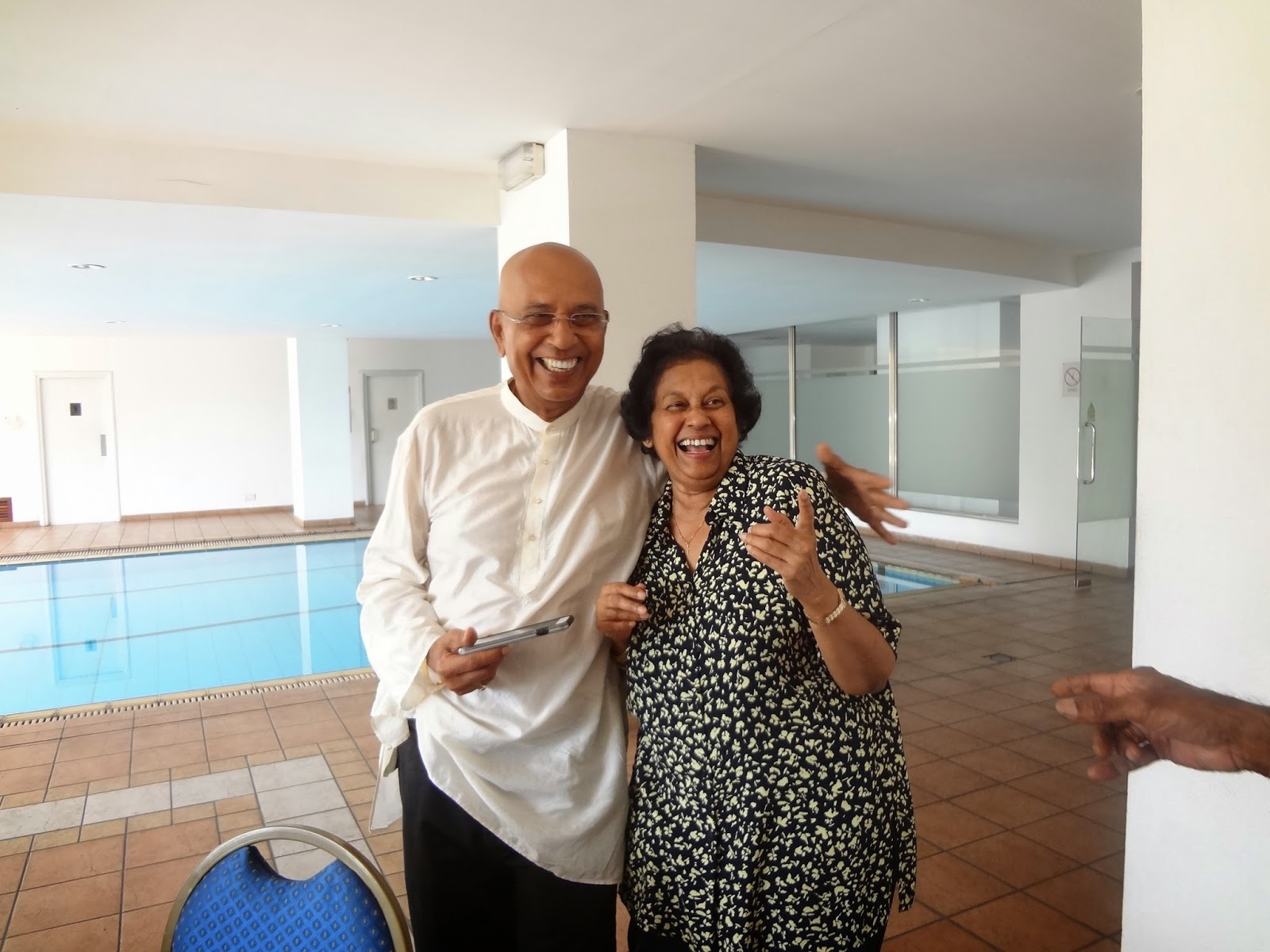By Nihal D. Amerasekera
Harsha Samarajiwa joined the Faculty of
Medicine after an illustrious career at Royal College as a fine cricketer and
an academic.
I met Harsha in 1962 amidst the rough and
tumble of life in the ‘Block’. We were
pulverized, decimated and reduced to nought by the indignities of the rags,
weekly signatures and quarterly revisals. All through those years Harsha
maintained a certain calmness and held on to his dignity. He was known for his
cheerful and friendly manner.
During those arduous medical student days
he continued to play cricket for the University. In 1962-63 The University Team that won the coveted Sara
Trophy has a legendary status amongst cricket lovers. To play a sport that consumes enormous swathes of time and then manage to complete
the course as planned is a goal not many could achieve. Fast bowlers by nature
are said to be aggressive like “Lilley and Thompson”. Although a fine and
effective ‘quickie’ I have never seen any of that belligerence in Harsha in all the years I have known him.
When my mother fell ill in 2008 one of my
relatives took her to Harsha. When he came to know this was my mother she was
treated as a special patient, fees were waived and everything possible was done
to make her comfortable and free of pain. All this was done before I arrived on
the scene from the UK and also before I
had any contact with Harsha. Now that I
would regard as true friendship. He spoke to me in detail about her illness and
kept me informed as nothing further could be done. I valued his skill, care and
compassion and respected his opinion.
The kindness and the deep concern that he
showed me during those difficult months is a tribute to his professional
expertise and etiquette. I have the greatest respect and regard for Harsha for being
helpful when my mind was at its lowest ebb. As I recall, when I thanked him he just smiled,
patted me on the back and went on his way.
I am told many cricketers and other
sportsmen from my era sought his guidance. They are full of praise of his skill,
fine bedside manner and also his exceptional kindness and generosity. His patients
appreciate enormously his humour, expertise and modesty.
During his long and successful career in
the Health Service he was a great role model and a mentor and guide to many
doctors. Many of his junior staff became imbued with his infectious enthusiasm and went on to become consultants.
We are in the habit of pouring tributes and
appreciations , posthumously, when people have left this world. There are times
when it is wise to disregard protocol and commemorate the lives of those who
are living and still provide an immense
service to society. Harsha is one of those self effacing, unsung heroes
of the Medical Profession.
Harsha, I thank you once more for being so
good to my mother when she was at the end of her life. It has been my great
good fortune to walk with Harsha on this journey of life. I wish you many more years
of good health and happiness.















